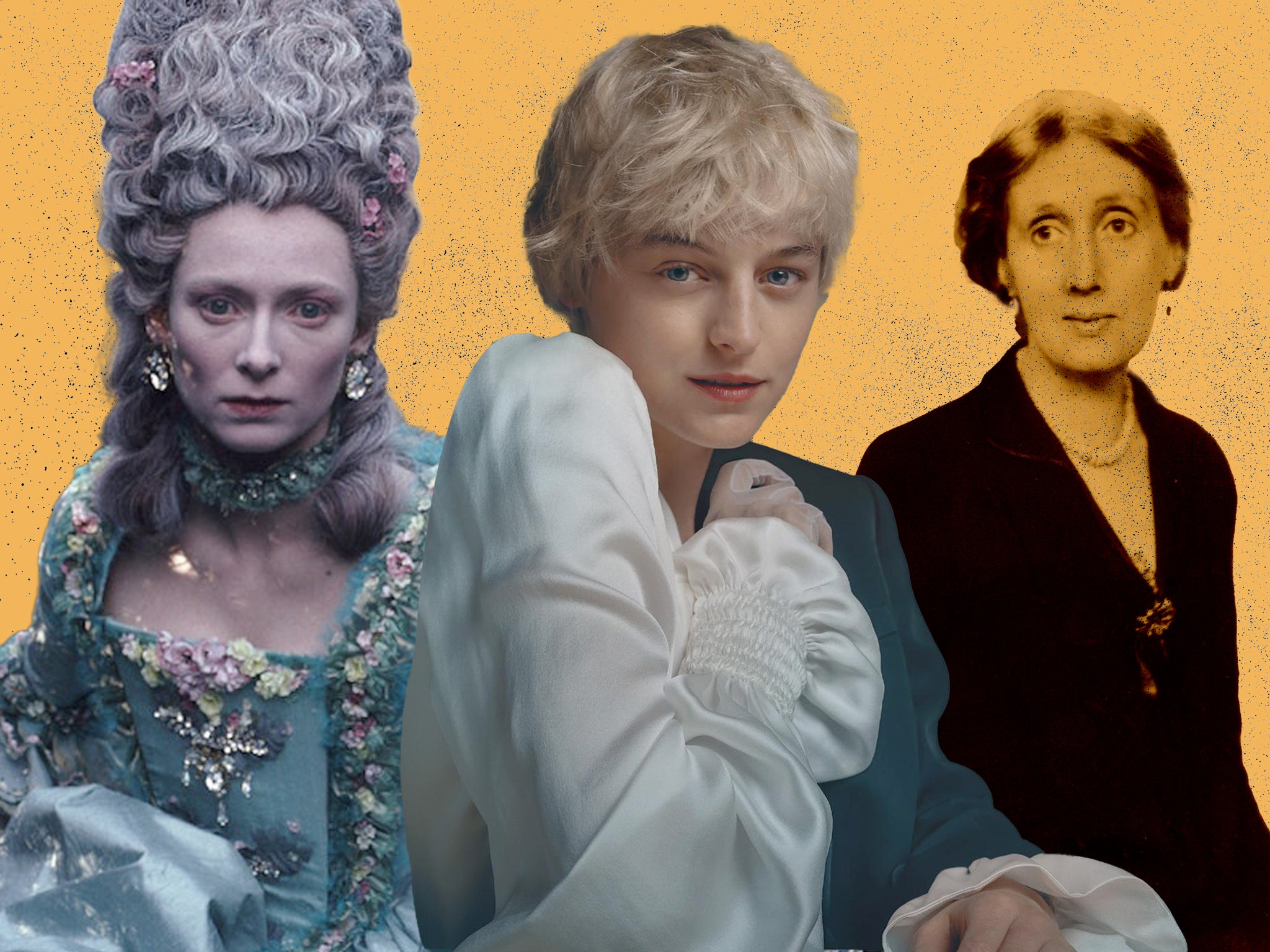Playwright Neil Bartlett on bringing Virginia Woolf’s provocative, prescient novel Orlando to the stage in 2022
As Emma Corrin plays Virginia Woolf’s most thrilling, radical protagonist in a new West End production, its writer Neil Bartlett explores why it’s time to reintroduce ourselves to ‘Orlando’

Virginia Woolf’s fantastical fictional biography Orlando is one of those stories whose central image seems to have escaped into the wider world. Even people who have neither read the original novel nor seen the beautiful 1992 film by Sally Potter will know that this is the one where the hero starts out in life as a gorgeous young Elizabethan aristocrat – and then wakes up at the age of 30 to discover that he has become a woman.
What is less well known about the story is in just how prescient a way Woolf then goes on to play with that already dizzying conceit. As her hero costume-changes first his, and then her, way through 300 years of English history, Woolf makes sure that they (yes, Woolf did sometimes use that word) get to sample just about every kind of sexuality known to woman. Orlando’s story starts with – spoiler alert – a blind date with Elizabeth I and ends with her in the arms of a dashingly masculine yet beguilingly feminine “husband”.
By the time we reach the book’s glorious finale, Orlando’s lovers have been male, female, straight, queer, bisexual and even asexual; in fact, their suitors and partners have been gender non-conforming in pretty much every contemporary sense of the word. Which is remarkable, given that Orlando was summoned into being in the 1920s, when writing about female homosexuality could result in your work being banned in this country.
Of course, the fact that Woolf’s hero changes from a man into a woman means that a lot of people will want to know if the story is “really” about a trans person. Well, I’ll leave my trans friends and colleagues to answer that one. What I can say, having seen the story come alive on stage during our previews, is that it seems very clear that Woolf was decisively and joyously ahead of her times; she is clearly saying that when it comes to who you love, it’s all about embracing possibility. After all, when she wrote this story, Woolf had herself just been ambushed by love for another woman for the very first time in her (married) life – fellow author Vita Sackville-West, to whom the book is dedicated.

Maybe that’s why she brings such a deeply personal touch to Orlando’s idea that our truest sense of ourselves is probably best thought of as a journey, rather than as a destination. What’s more – and I think this is what is really exciting our audiences – Woolf created a story in which radical attitudes towards gender and choice lead her hero-heroine towards a dismantling of boundaries, rather than into our unfortunate modern habit of policing them. Woolf has her beloved Orlando live like a whirlwind, kissing who she chooses, refusing who she chooses – and doing it all entirely without apology. Cutting through the years, this is a writer who wants us all to live out our choices with boldness, with laughter – and, above all, with generosity and courage.
In the final week of rehearsals, my work on turning this story into a show felt like it was being given extra urgency by current events. Listening in on discussions around international human rights for queer people following the start of the World Cup in Qatar, and then hearing the appalling news of the Transgender Day of Remembrance murders in Colorado Springs, I was struck all over again by Woolf’s extraordinary prescience. Specifically, I couldn’t help but remember that in the same year that she finished Orlando, she also delivered the famous set of lectures which she later turned into her book A Room of One’s Own. At the end of those lectures, she advised her young audience that if they really wanted to see the future that she was trying to imagine for us all, then they would probably need to wait another 100 years. Well, that was in 1928 – and the 100 years is almost up. I reckon now might be exactly the right time to find out what happens when her gloriously misbehaving Orlando steps back out of her trousers and on to the stage as our contemporary.
‘Orlando’ is at the Garrick Theatre until 25 February
Join our commenting forum
Join thought-provoking conversations, follow other Independent readers and see their replies
Comments


Bookmark popover
Removed from bookmarks